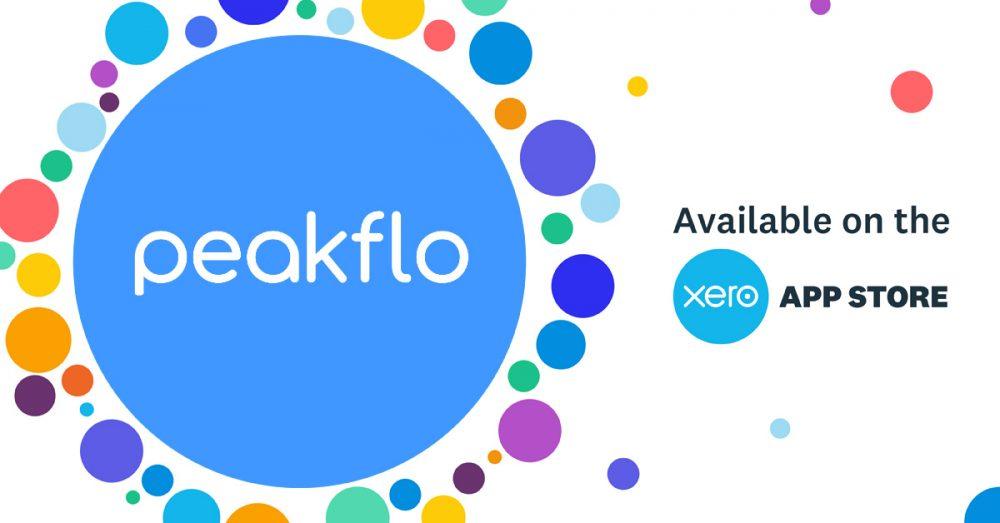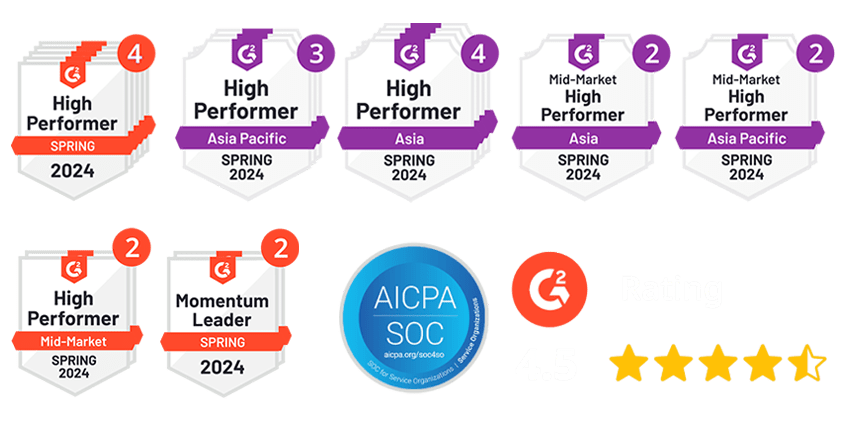Managing customer calls can be a headache for growing businesses. Missed calls mean missed opportunities, while hiring enough staff to handle peak demand strains budgets and creates scheduling nightmares. AI call agents now handle millions of calls every day, offering businesses a practical solution to these persistent communication challenges.
Companies like Vapi demonstrate the real impact of this technology, powering over 400,000 daily calls and saving hundreds of engineering hours monthly. These intelligent voice assistants have moved beyond experimental technology to become practical business tools that deliver measurable results.
Businesses implementing voice agents report significant improvements in their operations. Some increase contacts dialed by 31% and answered calls by 24%, while maintaining an impressive 99.99% uptime. These AI-powered systems work around the clock, handling everything from cold calls and lead qualification to appointment bookings and customer support. The ability to scale to millions of calls with sub-500ms latency makes call automation particularly valuable for growing businesses that need flexibility without proportional increases in overhead costs.
Understanding AI call agents and how they work is crucial for business owners considering this technology. Whether you’re looking to reduce costs, improve customer experience, or ensure you never miss another important call, the right implementation can deliver substantial returns.
This guide covers everything you need to know about AI call agents—what they are, how they work, and why your business might benefit from this technology. You’ll find practical advice for evaluating solutions and making the right implementation decisions for your specific needs.
What is an AI Call Agent?
Customer service departments face a constant challenge: how to handle increasing call volumes without hiring proportionally more staff. An AI call agent is a virtual assistant powered by artificial intelligence that manages phone conversations with customers without human intervention. These sophisticated systems go beyond simple automation to deliver responsive, personalized service that adapts to each customer’s needs.
Definition and core functionality
An AI call agent is an intelligent virtual system designed to understand, interpret, and respond to human speech over the phone. These agents can comprehend customer inquiries, provide relevant information, and complete actions through natural, conversational interactions. Unlike basic automated phone trees, they engage customers in genuine dialogue.
The foundation of any effective AI call agent relies on several key technologies working in coordination:
- Automatic Speech Recognition (ASR) converts spoken words into text
- Natural Language Processing (NLP) interprets the meaning behind customer statements
- Machine Learning enables continuous improvement from each interaction
- Large Language Models (LLMs) power nuanced understanding and responses
- Text-to-Speech (TTS) converts digital responses into a natural-sounding voice
AI voice agents can access company databases, CRM systems, and knowledge bases to deliver personalized responses and complete multi-step tasks autonomously. These systems integrate seamlessly with third-party applications such as calendar tools, e-commerce platforms, and ticketing systems to perform actions like updating account details, booking appointments, or processing payments.
These intelligent systems don’t follow pre-programmed scripts—they learn and adapt over time. Through ongoing interactions, AI call agents become more proficient at understanding different accents, speech patterns, and even slang, allowing them to provide increasingly accurate and helpful responses.
How it differs from traditional IVR systems
Traditional Interactive Voice Response (IVR) systems have dominated call automation for decades. However, they operate fundamentally differently from modern AI call agent, creating vastly different customer experiences.
Traditional IVRs force callers to navigate rigid menu structures by pressing buttons or speaking simple commands. This approach creates frustration as customers struggle to find the right option for their specific needs. IVR systems frequently lead to high call abandonment rates and longer resolution times.
AI call agents employ natural language understanding to facilitate genuine conversations. Rather than forcing customers to adapt to system limitations, these agents adjust to how people naturally communicate. Customers can simply state their problem in their own words—”I need to reschedule my appointment” or “There’s a charge on my bill I don’t recognize”—and the AI understands their intent immediately.
Several key distinctions separate AI call agents from traditional IVRs:
- Decision-making capability: AI agents make autonomous decisions based on conversation context, whereas IVRs require users to select from limited, predetermined choices.
- Conversation flexibility: While IVRs follow predetermined paths, AI call agents adapt to changing conversation flows, ask clarifying questions, and provide personalized solutions based on customer history.
- Problem resolution: Traditional IVRs typically reach dead ends requiring human intervention, whereas properly configured AI voice agents handle complex queries independently and transfer to human agents only when truly necessary.
- Continuous improvement: AI call agent improve through machine learning, becoming more effective with each interaction, unlike static IVR systems.
Companies implementing AI voice agents report significant improvements in customer satisfaction, reduced operational costs, and more efficient call handling compared to traditional IVR systems. Customers experience smoother interactions that feel more natural and human, despite being managed by artificial intelligence.
What are the Key Benefits of AI Voice Agents?
Businesses implementing AI-powered call solutions report measurable improvements across multiple operational areas. From cost reduction to enhanced customer satisfaction, these intelligent systems deliver value that extends well beyond basic automation.
1. 24/7 Availability and Instant Response
AI call agent operate continuously without the constraints that limit human teams. Unlike traditional call centers restricted by work hours and time zones, these virtual assistants ensure customers receive immediate support regardless of when they reach out. This continuous availability proves especially valuable for global businesses serving customers across multiple regions.
The systems process information instantly, eliminating hold times and reducing average handle time by 1.5 to 2 times compared to traditional call centers. Customers receive immediate attention without waiting in queues or navigating complex menu systems. For time-sensitive issues like account access problems or urgent service requests, this instant response can turn potentially negative experiences into positive ones.
AI call agents provide rapid resolution through real-time decision making. They simultaneously access multiple data sources, pull customer history, and deliver accurate answers without the delays human agents face when switching between applications or consulting supervisors.
2. Cost Reduction and Financial Benefits
The financial impact of implementing AI voice agents is substantial. Businesses typically experience up to a 75% reduction in cost per call compared to traditional staffing models. Human agents cost an average of $35,000-$50,000 annually, including salary, benefits, and training, while AI voice agents operate on a pay-per-minute model costing 70-80% less per interaction.
The cost advantages extend beyond direct conversation expenses:
- Reduction in capital and operational expenditures by 30-40%
- Decrease in post-call work by 40-50%
- Savings of up to 80% in post-call activities
- Overall reduction in customer service operating costs averaging 35%
While there’s an initial implementation investment, the long-term financial benefits make AI call agents increasingly attractive for businesses seeking to optimize customer service budgets without sacrificing quality.
3. Enhanced Customer Experience
Customer satisfaction drives business success, and AI call agents contribute significantly to improved experiences. They provide consistent service quality regardless of call volume or time of day. These systems also use customer data to deliver personalized interactions tailored to individual preferences and history.
Studies confirm measurable experience improvements. Companies implementing AI-powered systems report customer satisfaction score increases of 31.5%. AI-powered customer care has demonstrated satisfaction improvements of up to 30% in specific implementations.
The technology handles increasingly complex scenarios. Modern AI agents understand and resolve sophisticated customer problems, processing complete requests rather than just answering simple questions. This ensures customers receive fast, thorough, and accurate assistance.
4. Scalability for Business Growth
For growing organizations, an AI call agent offers unmatched scalability. These systems instantly adapt to changing demand without the lengthy hiring and training processes required for human teams. This flexibility proves valuable during seasonal spikes, product launches, or marketing campaigns that generate sudden increases in call volume.
Voice AI platforms use distributed cloud infrastructure to dynamically allocate computing resources based on real-time traffic patterns. There’s essentially no limit to the simultaneous calls the system can handle, whether processing hundreds or thousands of interactions. This decouples communication capacity from headcount, providing operational flexibility previously impossible with traditional staffing models.
This scalability allows organizations to grow confidently, knowing their customer communication systems can expand alongside their business without compromising service quality or requiring proportional increases in overhead costs.
Common Use Cases Across Industries
AI call agents solve different problems across various industries. Retail businesses use them for order tracking, healthcare practices deploy them for appointment scheduling, and financial institutions apply them to routine customer inquiries. Companies are discovering practical applications that reduce operational costs while improving customer experiences.
1. Customer support and FAQs
Routine customer inquiries consume significant staff time across industries. AI voice agents handle these repetitive questions efficiently, allowing human teams to focus on complex issues that require personal attention.
Contact centers now deploy AI to monitor and evaluate 100% of customer interactions, not just small samples. This approach ensures every call meets compliance and service standards while identifying areas where human agents need additional training.
Major financial institutions demonstrate practical implementations of this technology. Discover Financial created a Virtual Assistant that helps customers directly while providing additional context to human service agents. BudFinancial’s Financial LLM handles everyday banking tasks automatically, including moving money between accounts to prevent overdrafts.
The results justify the investment—organizations implementing AI agents report resolving up to 90% of inquiries and achieving a 60% reduction in the time patients spend on support calls. AI systems monitor performance metrics continuously, tracking resolution rates, response times, and customer satisfaction scores to improve service quality over time.
2. Appointment scheduling and reminders
Service-based businesses struggle with appointment management complexity. Phone calls interrupt front desk staff, scheduling conflicts create customer frustration, and no-shows waste valuable time slots. AI call agents address these challenges systematically.
Healthcare practices face particularly acute scheduling pressures. Front desks handle appointment bookings alongside prescription refills, insurance questions, and patient inquiries. AI voice agents step in to manage appointment scheduling and rescheduling autonomously. Patients simply state, “I’d like to book an appointment with Dr. Patel next week,” and the agent instantly checks available slots and confirms insurance eligibility.
Zocdoc’s voice AI tool “Zo” demonstrates this capability at scale, resolving up to 70% of scheduling calls without staff intervention. The average call concludes successfully in less than three minutes and thirty seconds, significantly faster than traditional manual scheduling processes.
3. Lead qualification and follow-ups
Sales teams often pursue unqualified prospects, wasting time on leads unlikely to convert. An AI call agent solves this problem by contacting new leads immediately, asking qualifying questions, and alerting sales teams only to high-potential opportunities.
This systematic approach delivers measurable improvements:
- Companies using AI-powered lead qualification see 20% higher conversion rates on average
- Organizations have increased the number of contacts dialed by 31% and answered calls by 24%
- AI voice agents pre-screen callers, ask budget and location questions, and transfer only qualified leads to live agents
Sales teams benefit from automated lead scoring and prioritized follow-ups with prospects most likely to convert. AI agents communicate with prospects through multiple channels autonomously, providing personalized information and answering questions during the nurturing process.
4. Order tracking and status updates
E-commerce businesses handle constant customer inquiries about order status, shipping updates, and return processes. An AI call agent streamlines these interactions from the moment customers call.
The process works systematically: First, agents identify callers using caller ID or by requesting order numbers, then cross-reference customer records in CRM or e-commerce systems. Next, they access integrated data systems to retrieve the current shipment status. Since customers ask questions naturally—”Where’s my package?” or “Has my order shipped yet?”—AI voice agents use natural language processing to interpret these varied requests.
After retrieving order information, the system communicates tracking details immediately and logs every interaction with timestamps, queries, and resolutions. When AI detects complex issues like lost shipments, it escalates cases to human representatives while preserving conversation context.
This automation creates better customer experiences through immediate, accurate updates while reducing manual workload for support teams.
How AI Call Automation Works
Image Source: link.springer.com
The technology behind AI call agents might seem complex, but understanding how these systems work helps business owners make informed implementation decisions. These intelligent systems combine several key technologies that process language, make decisions, and connect with your existing business tools to create seamless customer interactions.
1. Speech recognition and natural language processing
When a customer speaks into their phone, the AI call agent begins a multi-step process to understand and respond appropriately. Modern AI voice agents capture this audio and convert it into text through Automatic Speech Recognition (ASR) systems. These systems achieve up to 93.3% accuracy in ideal conditions and maintain an impressive 76.5% accuracy even in noisy environments.
Natural Language Processing (NLP) takes over once the speech becomes text, interpreting the meaning behind the customer’s words. This technology combines three essential components:
- Computational linguistics that analyzes grammar and sentence structure
- Machine learning algorithms that understand context and intent
- Statistical modeling that predicts what the customer needs
NLP enables voice agents to look beyond literal words to grasp the customer’s true intent, distinguishing between “I want to book an appointment” and “Is Dr. Smith available next Tuesday?” as different types of scheduling requests.
2. Real-time decision-making and routing
Once the system understands what the customer wants, real-time decision-making capabilities determine the best response or action. Modern AI call agent continuously analyze conversations as they happen, assessing customer sentiment by examining tone, word choice, and speech patterns. This allows the system to detect frustration or satisfaction and adjust its approach accordingly.
For call routing, the AI analyzes the customer’s request alongside historical data and available resources. Intelligent call routing systems then direct customers to the most appropriate department or agent based on several factors:
- Customer history and previous interactions
- The specific expertise needed for resolution
- Current wait times and agent availability
- Priority level of the issue at hand
Organizations implementing these AI-powered routing systems report a significant 60% reduction in wait times and a 25% increase in customer satisfaction. The technology goes beyond simple transfers to perform lead qualification through automated discovery dialogs, ensuring sales teams receive only high-potential prospects.
3. Integration with CRMs and calendars
System integration makes AI call agents truly powerful for business operations. When a call begins, the AI agent instantly retrieves customer data from your CRM system. If the caller shares identifying information like a phone number or name, the system pulls up their complete history, including past purchases and service requests.
Throughout the conversation, the AI automatically updates your CRM with new information gathered. Using natural language processing, it categorizes details like contact information or service inquiries in real-time. After the call concludes, these updates synchronize instantly, with relevant tags applied based on the conversation content.
These integrations extend to workflow automation as well. Based on call outcomes, AI agents can trigger specific actions—assigning leads to sales representatives, scheduling follow-ups, or sending automated confirmation emails. This creates a continuous digital thread connecting customer conversations to your operational systems, ensuring nothing falls through the cracks.
Key Features to Look For in a Voice Agent Platform
Choosing the right AI voice platform can make or break your implementation. The wrong solution wastes time and budget, while the right platform delivers immediate value. These essential features separate effective solutions from disappointing investments.
1. Multilingual support
Global businesses cannot afford platforms that limit customer communication. Advanced platforms offer support for 60+ languages and dialects, ensuring customers can communicate naturally regardless of their native tongue. Beyond basic translation, superior systems understand regional accents, cultural idioms, and linguistic nuances.
The best platforms handle language switches mid-conversation—valuable for multilingual regions where customers may switch between languages during calls. This capability eliminates frustrating transfers between different language-specific agents.
2. Custom prompts and tone control
Your AI call agent should sound like part of your team, not a generic robot. Look for platforms that allow precise control over your agent’s persona and communication style. Top systems offer customizable voice characteristics, including professional, informal, or enthusiastic tones.
Response length control matters too. You can adjust from 30-150 words for messaging or 150-600+ words for email, and add natural speech elements like pauses, hesitations, and emotional emphasis to create more human-like interactions. This customization ensures your brand voice remains consistent across all customer touchpoints.
3. Call transfer and escalation
AI agents need reliable backup options. Effective platforms offer both cold transfers (direct routing without context) and warm transfers (where the AI briefs the human agent before connecting). The best systems maintain conversation context during handoffs, preventing customers from repeating information.
Quality platforms automatically identify complex or high-priority issues that require human intervention. This smart escalation prevents customer frustration while ensuring human agents handle only the most complex cases.
4. Analytics and performance tracking
Data drives improvement. Look for platforms that monitor key metrics like resolution rates, response accuracy, and customer satisfaction. Advanced systems provide AI-driven insights on agent performance, helping identify improvement opportunities through voice analytics that assess tone, pitch, and emotional indicators.
Regular performance analysis helps fine-tune your AI agent’s responses and identify areas where additional training data might improve outcomes.
Tips for Successful Implementation
Getting AI call agents up and running effectively requires a systematic approach. The most successful deployments follow proven strategies that reduce risk while maximizing the technology’s impact on your business operations.
1. Start with a single use case
Focus on one specific problem rather than attempting to overhaul your entire call center. Choose a straightforward, high-volume call type like appointment scheduling or FAQ responses. This targeted approach allows you to test functionality and address workflow challenges without overwhelming your resources. You can expand capabilities once the foundation proves successful.
Pick use cases where the outcomes are easy to measure. Appointment scheduling, for instance, has clear success metrics—did the appointment get booked correctly? Was the customer satisfied? These measurable results help you refine the system before tackling more complex scenarios.
2. Train your agent with real data
Your AI call agent’s effectiveness depends heavily on the quality of training data you provide. Feed it with real-world examples, including actual call transcripts, your current FAQ responses, and internal documentation. Include diverse language patterns, regional accents, and colloquial expressions that your customers actually use during calls.
Don’t rely on generic training data. Your agent needs to understand industry-specific terminology and provide contextually appropriate responses. For example, a medical practice’s AI agent should recognize insurance terminology, while a restaurant’s agent needs to understand menu items and dietary restrictions.
3. Monitor and optimize regularly
Continuous monitoring drives improvement in your AI implementation. Track key performance metrics such as resolution rates, call completion percentages, and user satisfaction scores. Analyze call recordings to identify patterns in customer interactions and spot areas where the AI struggles.
Regular data analysis helps you fine-tune AI parameters and conversation flows based on actual usage patterns. Look for common points where customers express frustration or where calls get transferred to human agents. These insights reveal opportunities for improvement.
4. Ensure fallback to human agents
Even well-trained AI systems need human backup for complex situations. Establish clear handoff rules for when the AI should transfer conversations. Define specific triggers, including negative sentiment detection, multiple failed resolution attempts, or explicit customer requests for human assistance.
The transition should feel seamless to customers. Preserve conversation context so customers don’t need to repeat information they’ve already provided. Brief human agents about the conversation history and the customer’s specific issue before the transfer completes.
Test these handoff scenarios regularly to ensure they work smoothly. Nothing frustrates customers more than a broken transfer that drops their call or forces them to start over with a new agent.
Peakflo AI Voice Agent: Smarter Conversations, Better Collections
At Peakflo, we’ve built AI Voice Agents designed specifically to solve one of the toughest challenges businesses face—managing high volumes of calls without ballooning costs. Unlike generic voice AI, Peakflo’s solution is purpose-built for finance and operations teams, automating critical workflows like invoice collections, sales lead qualification, customer service, and appointment confirmations.
What makes Peakflo AI Voice Agent stand out is its ability to combine natural, human-like conversations with deep integration into your existing systems—whether it’s your CRM, ERP, or shared inbox. The agent not only answers calls but also takes action: logging outcomes, scheduling follow-ups, updating records, and even escalating to your team when needed. This ensures no important call is missed and every interaction is captured in real time.
Businesses using Peakflo AI Voice Agent have seen measurable improvements: fewer missed payments, faster collections, and significantly reduced manual workloads for finance and ops teams. With round-the-clock availability, sub-second response times, and seamless multi-language support, Peakflo helps companies scale their customer and vendor communication without scaling headcount.
Whether you’re a growing startup or a multi-entity enterprise, Peakflo AI Voice Agent ensures every call drives value while freeing your team to focus on strategic priorities.
Ready to see it in action? Book a call with Peakflo experts and discover how AI Voice Agents can transform your business communication.
Conclusion
AI call agents offer a practical solution to the communication challenges that growing businesses face daily. These systems handle routine tasks like appointment scheduling and lead qualification while delivering measurable cost savings and improved customer experiences. Rather than replacing human agents entirely, they work alongside your team to ensure no important call goes unanswered.
The technology has evolved beyond basic automation to become a strategic business tool. Modern AI voice agents understand context, make real-time decisions, and integrate with your existing systems to create a seamless customer experience. For businesses looking to scale without proportional increases in overhead, this technology provides operational flexibility that traditional staffing models cannot match.
Companies implementing AI voice agents strategically are already seeing competitive advantages through enhanced customer experiences and operational efficiency. The decision for your business involves determining the right timing and approach for implementation based on your specific needs and growth objectives.
Whether you’re struggling with missed calls, overwhelmed staff, or inconsistent customer service, AI call agents can address these challenges while positioning your business for sustainable growth.
FAQs
Q1. What are the main advantages of using AI call agents for businesses?
AI call agents offer 24/7 availability, cost savings, improved customer experience, and scalability. They can handle high call volumes instantly, reduce operational costs by up to 75%, and increase customer satisfaction scores by over 30%.
Q2. How do AI call agents differ from traditional IVR systems?
Unlike rigid IVR menus, AI call agents use natural language processing to understand and respond to customer queries conversationally. They can adapt to changing conversation flows, make autonomous decisions, and continuously improve through machine learning.
Q3. Can AI call agents handle complex customer inquiries?
Yes, modern AI call agents can understand and resolve sophisticated customer problems. They access multiple data sources simultaneously, provide personalized responses based on customer history, and can handle complex tasks like rescheduling appointments or processing refunds.
Q4. How do businesses integrate AI call agents with existing systems?
AI call agents seamlessly integrate with CRM systems, calendars, and other business tools. They can retrieve customer data, update records in real-time, trigger automated workflows, and sync information across platforms to ensure a cohesive customer experience.
Q5. What should companies consider when implementing AI call agents?
When implementing AI call agents, companies should start with a single well-defined use case, train the AI with real company data, regularly monitor and optimize performance, and ensure there’s a smooth fallback process to human agents for complex issues.









![Why AI Sales Calls Are Making Good Sales Reps Even Better [2025 Guide] ai sales calls](https://cdn-kmjmp.nitrocdn.com/YvtqmrsiHUxqerlSiZgbfzqqTARWTElr/assets/images/optimized/rev-834053b/blog.peakflo.co/wp-content/uploads/2025/09/65168cf6-3001-4733-8cbc-12d5684cf449-218x150.webp)

































